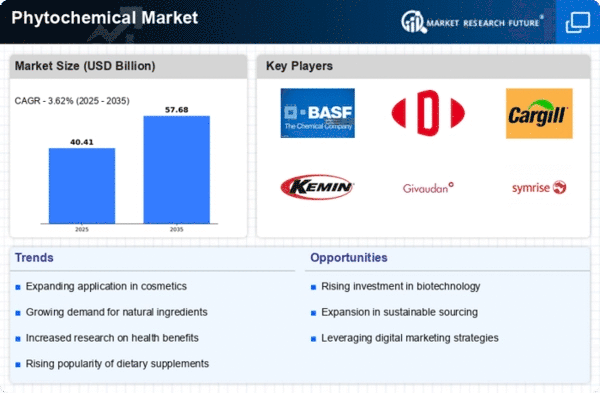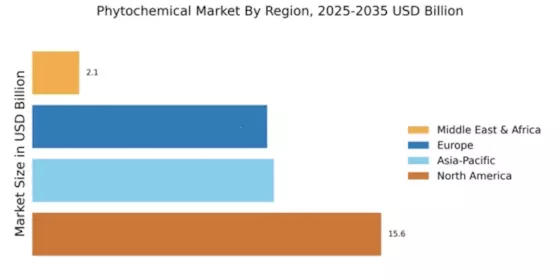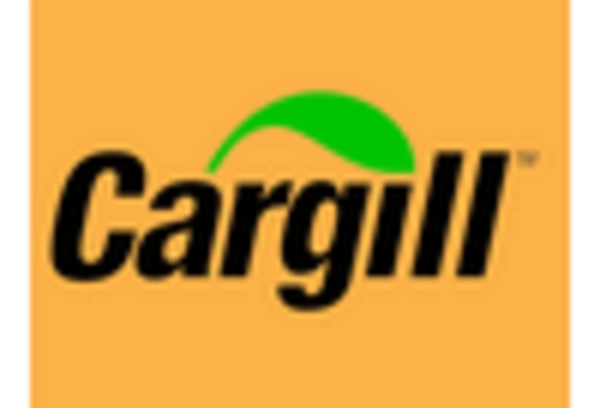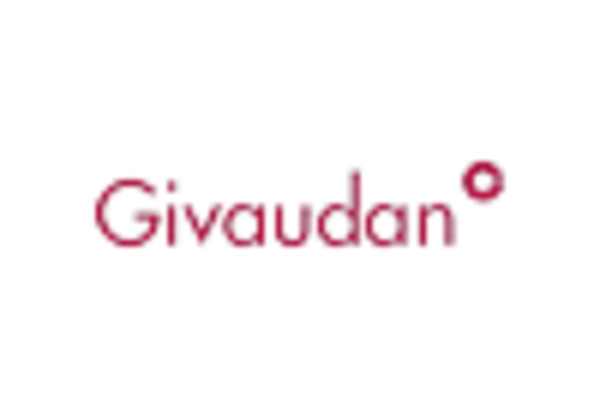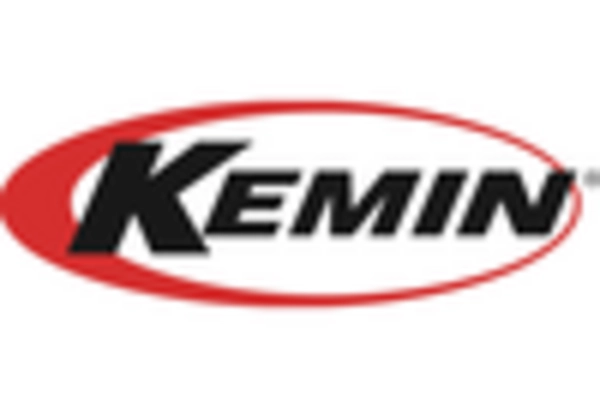Rising Demand for Natural Ingredients
The Global Phytochemical Market Industry is experiencing a notable increase in demand for natural ingredients across various sectors, including food and beverages, cosmetics, and pharmaceuticals. Consumers are becoming more health-conscious, leading to a shift towards products that contain natural phytochemicals. This trend is supported by the growing awareness of the potential health benefits associated with phytochemicals, such as antioxidants and anti-inflammatory properties. As a result, the market is projected to reach 39 USD Billion in 2024, reflecting a significant consumer preference for natural over synthetic alternatives.
Growing Applications in Nutraceuticals
The application of phytochemicals in nutraceuticals is expanding significantly within the Global Phytochemical Market Industry. As consumers increasingly seek dietary supplements that promote health and wellness, phytochemicals are being incorporated into various nutraceutical formulations. This trend is supported by research indicating that certain phytochemicals can enhance immune function and provide cardiovascular benefits. Consequently, the nutraceutical segment is expected to drive substantial growth, contributing to the overall market expansion as it aligns with the rising consumer preference for preventive healthcare solutions.
Regulatory Support for Phytochemical Use
Regulatory bodies worldwide are increasingly recognizing the benefits of phytochemicals, which is fostering growth in the Global Phytochemical Market Industry. Governments are implementing policies that encourage the use of natural compounds in food and health products. For instance, the European Food Safety Authority has established guidelines that promote the safety and efficacy of phytochemicals. Such regulatory support not only enhances consumer confidence but also stimulates innovation in product development, thereby contributing to the market's projected growth to 57.7 USD Billion by 2035.
Increased Research and Development Activities
Ongoing research and development activities are vital to the evolution of the Global Phytochemical Market Industry. Academic institutions and private companies are investing in studies to explore the therapeutic potential of various phytochemicals. This research is crucial for validating health claims and discovering new applications for phytochemicals in medicine and wellness. As a result, the market is likely to benefit from a steady influx of innovative products and formulations, further enhancing its growth trajectory in the coming years.
Technological Advancements in Extraction Methods
Innovations in extraction technologies are playing a crucial role in the Global Phytochemical Market Industry. Advanced methods such as supercritical fluid extraction and ultrasound-assisted extraction are improving the efficiency and yield of phytochemical extraction from plant sources. These technologies not only enhance the quality of phytochemicals but also reduce production costs, making them more accessible to manufacturers. As a result, the market is likely to witness a compound annual growth rate of 3.62% from 2025 to 2035, driven by these advancements that facilitate the sustainable sourcing of phytochemicals.


